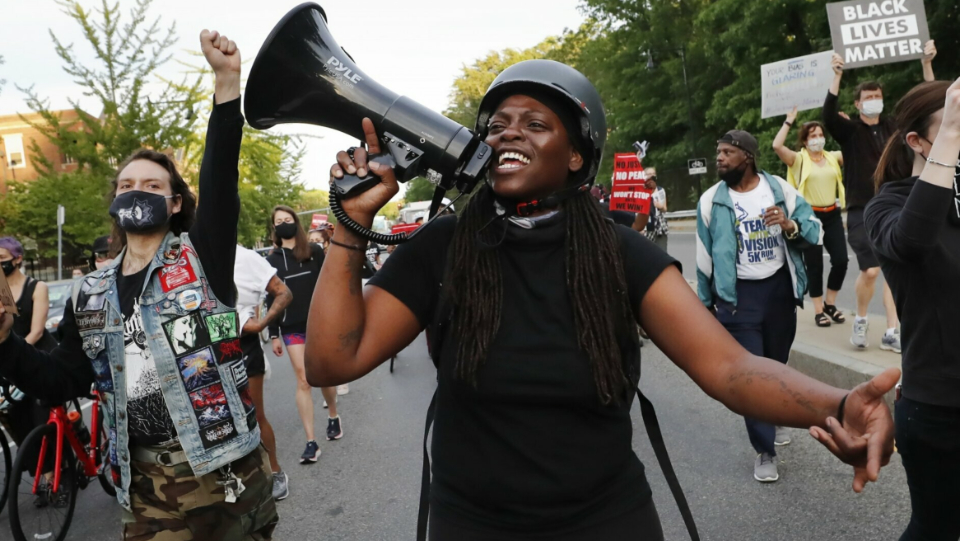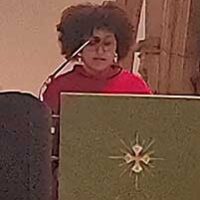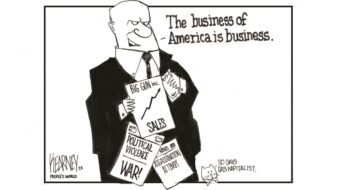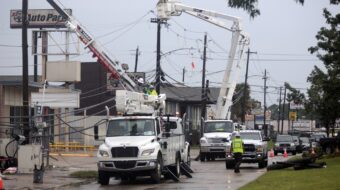
Activist burnout has become more prevalent since the 2020 George Floyd uprisings. A lot has changed since then, though, as we’re no longer maintaining daily marches, rallies, and demonstrations. We are no longer facing off riot cops in intersections that once felt like warzones. We don’t have to maneuver as quickly as we did that summer, but still, many of us feel as though we have to.
For some of us, the feeling of being on-the-go has yet to stop, and with the amount of uncertainty placed on us from U.S. capitalism and imperialism, the need to constantly be organizing and preparing for the next big thing can sometimes feel so dire that we break down and burn out. It’s easy to get exhausted as we battle the system, alongside a persisting pandemic.
Organizers are finding themselves experiencing a higher level of depression, doom-ism, and depletion. I am frequently fighting my own doom-ism, or rather, lack of hope. It typically leaves me questioning not only the struggle against the system but also my own worth as an organizer. Sometimes I can’t help but wonder whether a better world is even possible when our oppressors do so much to keep us down.
The exhaustion we feel about our fight just goes to show, however, that the system is working as intended.
I often find myself drained by organizing work because I feel so much of my time and energy goes into meetings and actions, but yet I don’t always see the fruit of my labor, and that can feel rather frustrating. I feel like I’m constantly teetering between optimistic passion and defeatist burnout.
The level of hopelessness we face from burnout needs to be addressed, and not just by the individual, but by the movement as a whole. Organizing work is the only thing that gives me optimism, because I believe that there’s something better than this. We all deserve better than this.
Of course, we can’t talk about healing from burnout without talking about radical imagination. Part of the better world I imagine involves embracing and honoring our emotions and mental health, not just on our own but as a community.
We have to understand that most of us are not experts on mental health. And thanks to the stigmatization of mental illness, we’re going to have to conquer that mountain together. Learning to understand mental health is an important practical part of movement work, especially when it comes to burnout. It’s true in the abstract, too, though.
The police are infamous for murdering people, and especially Black people, during mental health crises. If we aim to gain community control of the police and their budgets, then we must pair it with a demand to reinvest in our communities by funding mental health care and services that are not the police.
We must understand the way police violence can affect the mental health and burnout of Black people and organizers in our community, as we continuously see our people slain in the streets by killer cops and even wannabe cops, such as George Zimmerman and Kyle Rittenhouse.
We also must take a deep dive into the healing work that we still have yet to do since the summer of police brutality in 2020. Understanding the causes of burnout is just as important as finding solutions.
I don’t believe we can self-care ourselves out of the harsh effects of the system. Oftentimes, self-love and care are promoted without any acknowledgment of the need for other kinds of care or the systemic issues marginalized people face.
Self-care is important, but it does not replace the need for communal love. Many other cultures take on collective responsibility for community care and healing work, but in the U.S., people are intentionally kept divided. There’s power to be had in numbers and in a community that shows up for one another. That power is a direct threat to capitalism, which is all the more reason to build a stronger community.
We are all responsible for ourselves individually, but it should not be our responsibility to heal societal trauma and activist burnout alone. It is vital for our movements that we build a compassionate community that carries us all through the struggles we face as working-class people. Those who do the work of carrying others should be able to trust that they, too, will be carried in return.
This is something I struggle with personally. I have a lot of radical love and care for my comrades, but I am not used to receiving reciprocity, so sometimes I don’t even know what to do with it or how to respond to it. For example, since the recent passing of my mother, many of my comrades asked to support me by providing meals or trying to be present, but I had a difficult time accepting and trusting their kindness.
I am so used to having to be completely independent that I forget how to let people in. This also frustrated my comrades and put a temporary strain on our relationships because I was too stubborn to accept help, while they could recognize I really needed help. I don’t always know how to let people carry me, even though I know it is something I need. Some of us need to work on receiving care, while others need to work on offering more of it.
While I believe that community healing is part of radical care, it is still important that we do the self-work (I’m not, however, referring to self-love). There is a lot of pride and ego in our organizing spaces, which is why we must do the work of checking ourselves. It is important to recognize people for their contributions and to offer credit where it is due. But when doing this work, we must accept that nobody is better or lesser than anyone else, regardless of the roles we may hold.
We all have different backgrounds, boundaries, capacities, responsibilities, strengths, and weaknesses. We all have different needs as well, so what works for some of us may not work for others. We are all capable of building ourselves and each other as leaders. It is important that we share our different levels of expertise to build a successful movement.
When our egos get in the way of our work, we fail to recognize the ways capitalism shows up in our own personalities and the ways that brings us down further. Because of our egos, sometimes we refuse to admit our changing capacities and struggles of burnout to ourselves and our comrades, which can cause more organizational and interpersonal conflicts.
Simple solutions to address and combat organizing egos can include admitting to ourselves that we are not perfect people and it’s okay not to know to everything, a willingness to learn from someone else, admitting to others when we are wrong (while still maintaining grace with ourselves), knowing when to apologize, creating healthy boundaries, and again, accepting and providing radical community care in our organizing settings.
So, what does radical community care even look like?
Community care can be as simple as a supportive text and checking in on someone. It can be helping someone with basic tasks that may not feel so basic for them, such as doing the dishes. Community care is offering support to someone who needs it, even if they don’t realize, but it’s also learning how to communicate as someone mentally having a hard time and somebody caring for that person.
When someone is going through a tough time, instead of asking if they need anything, it’s more helpful to be specific about what it is you can offer. This method honors your own capacity, while also causing someone to reflect on what they actually may need. For example, ask if they need someone to talk to, someone just to sit with, someone to walk their dog or watch their kids, someone to bring them food, or someone to go on a walk or get out of the house with.
I know I feel so much love when someone just simply tells me they’re here, that they care, that they support me and the things I do. While it’s no easy task, there is also a need to build more trust in each other. Simple ways to build up trust can include listening more and reacting less, working on our approach with constructive criticism and conflict resolution, more coaching of leaders, inclusivity, honesty and transparency, and showing appreciation.
As organizers, sometimes we fail to properly acknowledge and appreciate the work that our comrades take on. When we treat each other like robots, we will burnout quicker. Expecting people to do work without showing appreciation is a symptom of capitalism. Whether it’s simply reaching out, helping accomplish a task, or saying “thank you,” the littlest things can make all the difference.
We have to consider the ways in which Black, Brown, women, and LGBTQ+ organizers may face more mental fatigue due to the special oppression that they are not only fighting against, but also experiencing.
For the betterment of our community, we must continue to talk about how we hold the police and our cities accountable for the reoccurring police murders of people in mental distress, such as Porter Burks and Kiaza Miller.
As organizers, we must accept the challenge of preventing and working through burnout, and we must do that together. It’s up to the movement to lead by example to create a stronger and better community.
We have to continue talking about difficult topics such as mental health, in order to create solutions.
We may not have all the answers right away, but we have to start somewhere so that we can build a more reliable community that has each others’ backs in a systemic struggle that has repressed organizers, the working class, and our communities entirely.
Through meaningful conversation and problem-solving, we can tackle burnout from the root cause and find a way to recover our communities and people, together.
As with all op-eds published by People’s World, this article reflects the opinions of its author.












Comments